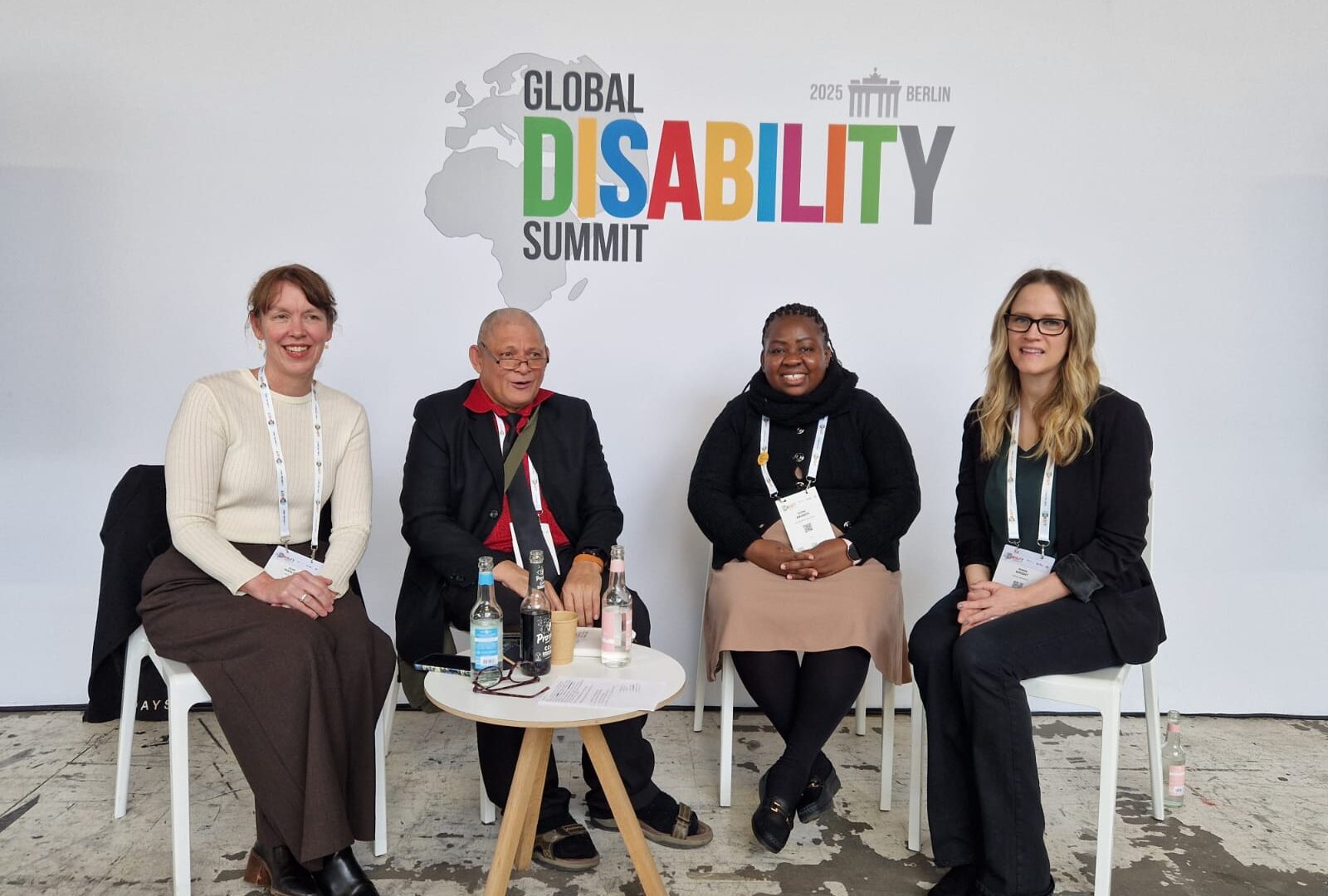Highlighting the intertwined realities of ageism and ableism
A key part of my engagement was hosting a well-attended fireside chat that delved into the critical intersection of ageism and ableism. This interactive session, organised in collaboration with our global partner CBM Australia, and with contributions from local partners in Tonga and Kenya, provided a vital space to explore the unique challenges faced by older people with disabilities. The interest and engaging Q&A session underscored the importance of addressing these intersecting forms of discrimination.
Showcasing our commitment through visual storytelling
Beyond the event, HelpAge also presented a photo exhibit. This visual display highlighted the tangible ways in which we are fulfilling our commitments to disability inclusion on the ground, demonstrating our dedication to creating positive change in the lives of older people with disabilities. It was powerful to see our work visually represented and to share those stories with fellow attendees.
Reflections from the summit: A call for coherence and continued action
The general reflections emerging from GDS 2025 resonated deeply with my own observations and HelpAge’s priorities:
- Solidarity requires constant renewal: The summit served as a powerful reminder that even among allies, the work of building and strengthening solidarity is ongoing and essential.
- Collective resolve in the face of challenges: In a climate of budget cuts, the summit underscored the importance of clarity, conviction, and coordination in defending disability inclusion principles.
- Data as a catalyst for change: The discussions highlighted the critical role of age, gender and and disability data in informing policy and ensuring that the experiences and voices of persons with disabilities are understood and acted upon.
- The strength of complementary partnerships: The summit emphasised that effective progress relies on partnerships that leverage the unique strengths of different organisations. Our collaboration with CBM Australia and our local partners felt particularly significant in this context.
- Funding rooted in rights drives impact: Conversations around funding highlighted the transformative potential of well-designed financial priorities in supporting disability rights organisations and initiatives.
Why representing older people with disabilities matters
Attending the GDS provided a crucial platform to ensure that the voices and experiences of older people with disabilities are heard and integrated into the broader disability inclusion agenda. This representation is vital for several reasons:
- Addressing intersecting discrimination: Older people with disabilities often face compounded discrimination due to both their age and their disability. Failing to explicitly address this intersection can lead to their specific needs being overlooked.
- Recognising the diversity of the disability community: The disability community is diverse, and older people form a significant part of it. Their unique experiences, challenges, and contributions must be acknowledged and considered in policy and practice.
- Ensuring age-inclusive policies: Disability inclusion efforts must be age-inclusive, recognising that disability can occur at any stage of life and that the needs of older people with disabilities may differ from those of younger individuals.
- Leveraging the experience and wisdom of older people: Older people with disabilities often possess valuable lived experience and insights that can enrich the disability rights movement and contribute to more effective solutions. It felt important to bring this perspective to the forefront.
The Global Disability Summit 2025 generated significant momentum and commitments. For HelpAge, and for me personally, the key now is to ensure that these commitments translate into tangible actions that specifically address the needs and rights of older people with disabilities.
I left Berlin energised by the connections made, the knowledge shared, and the renewed sense of collective purpose. We should continue to work with our partners to advocate for age-inclusive disability policies and programmes, ensuring that everyone, regardless of age or ability, can live a life of dignity and inclusion. The journey towards a truly inclusive world requires that we amplify all voices, and the voices of older people with disabilities are essential to this endeavour.
This blog is written by Annie Wright, Inclusion Adviser at HelpAge International.

